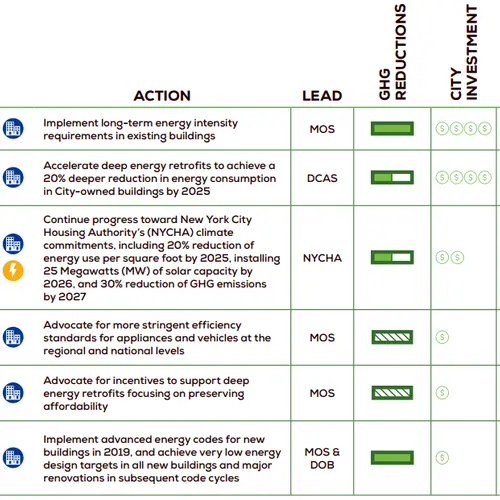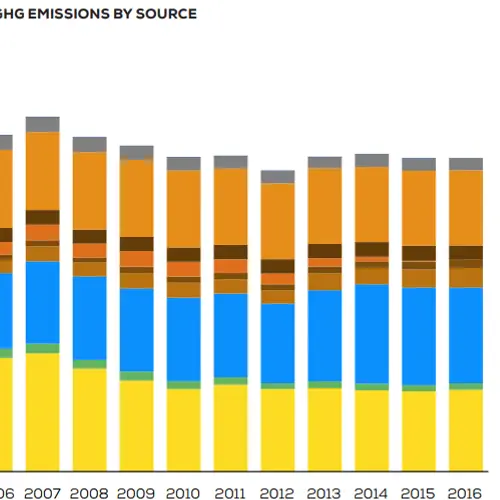De Blasio releases plan for New York City to follow Paris climate agreement
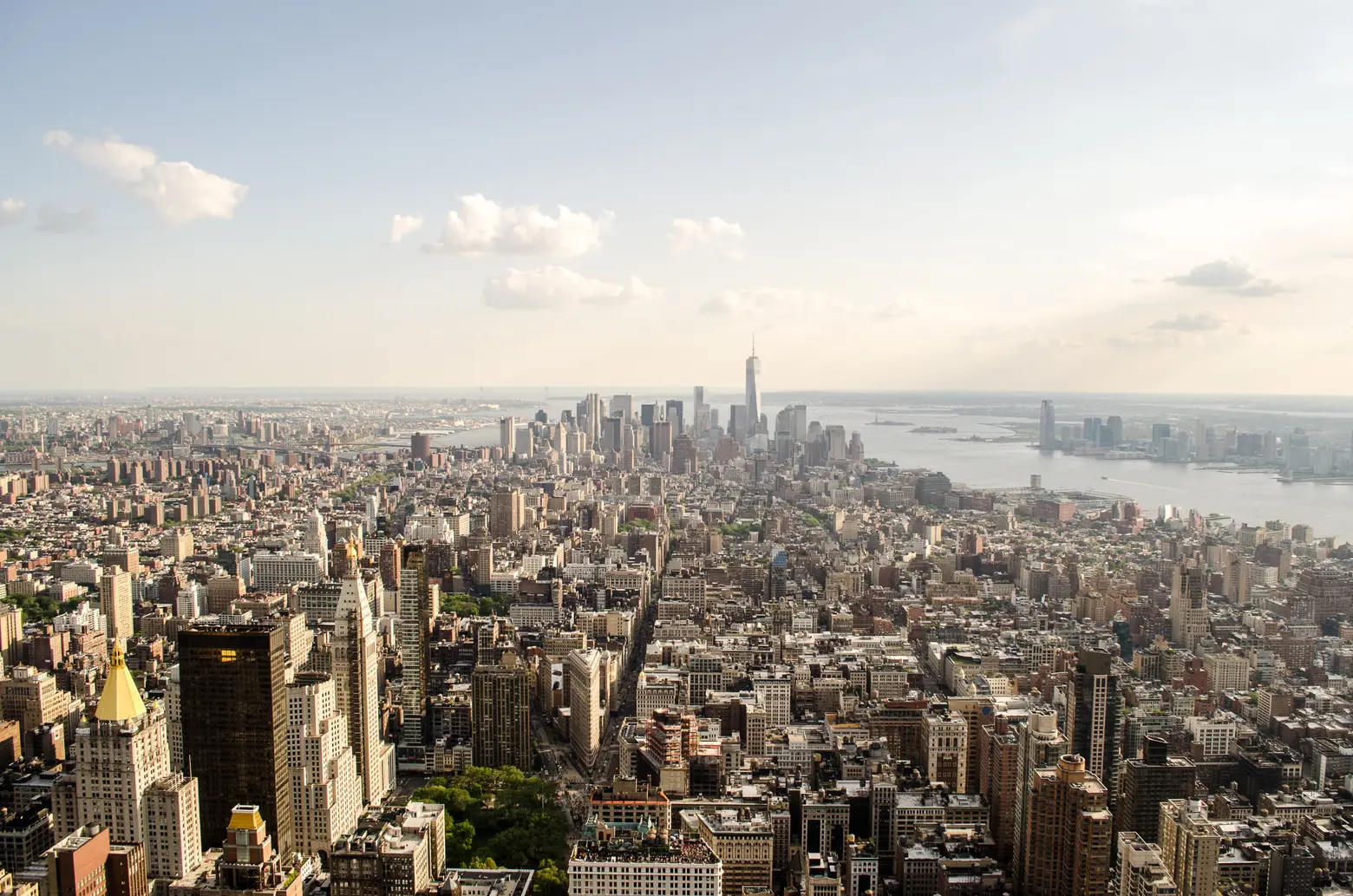
Photo via pixabay
Following President Donald Trump’s decision to pull the United States out of the Paris Climate Agreement in June, Mayor Bill de Blasio signed an executive order that committed New York City to honor the standards of the accord, which is an international negotiation aimed to mitigate climate change worldwide. On Tuesday, de Blasio released an action plan that details ways to lower the city’s carbon footprint, reduce 10 million metric tons of carbon dioxide by 2030 and introduce a citywide single-stream recycling program by 2020. New York City is the first metropolitan area to release a Paris Agreement-compatible action plan, according to the report.
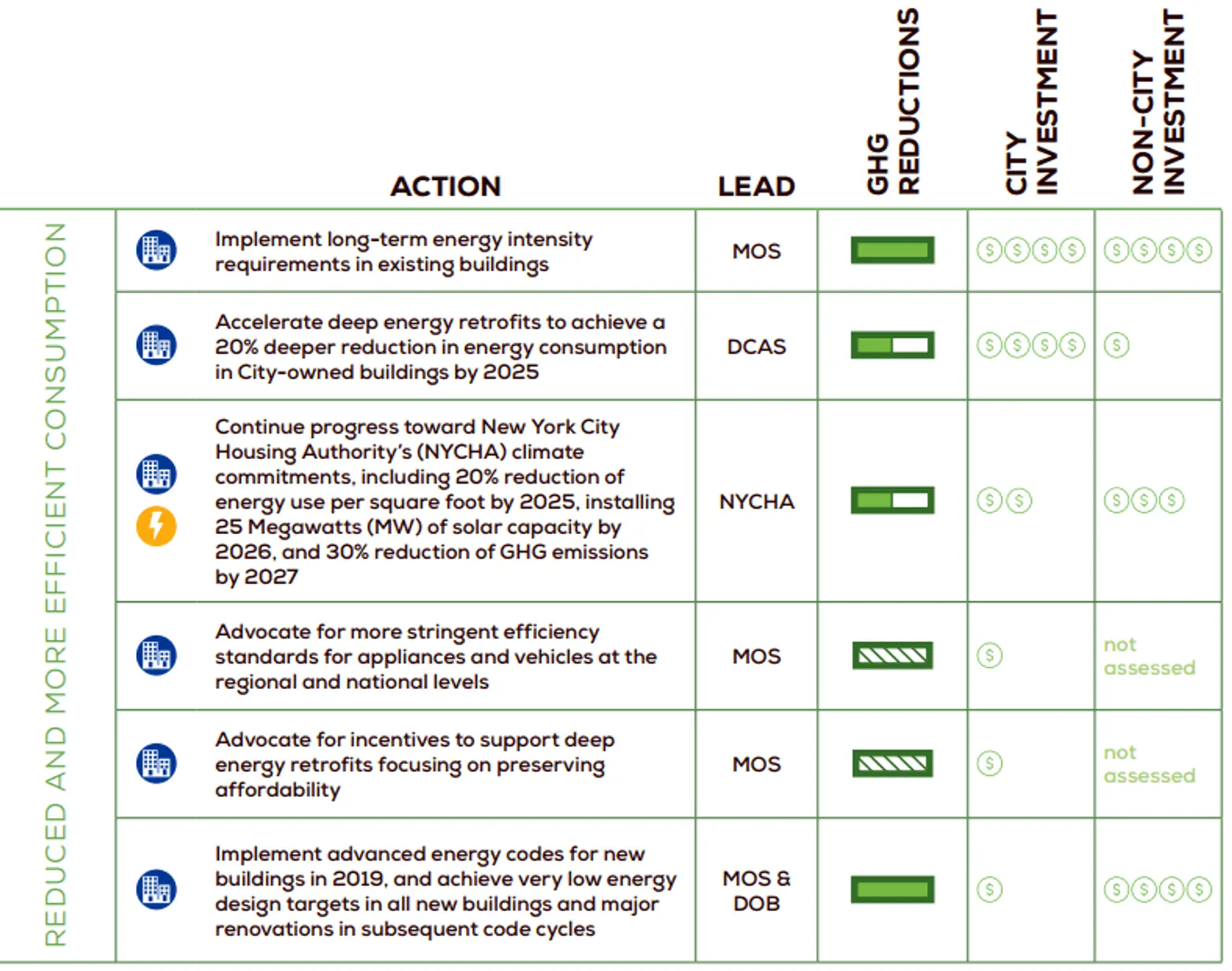
Actions found in the city’s plan, via the mayor’s office
In 2014, the city pledged to reduce greenhouse gas emission 80 percent by 2050 and later in 2016 released a report that detailed the city’s roadmap to “80×50.” The mayor’s action plans aims to further the city’s progress at reaching the 80×50 goal and adds measures that follow the Paris agreement’s commitment to limit the global temperature rise to 1.5 degrees Celsius.
The plan, titled 1.5°C: Aligning New York City With the Paris Climate Agreement, assesses how quickly NYC must act in order to reduce greenhouse gas emissions and also identifies actions that the city must take by 2020. Over the next three years, the city plans to implement specific climate actions that honor the Paris climate agreement. Actions include reducing on-site fossil fuel use, retrofitting city-owned buildings, requiring all large buildings by 2025 to build to very-low-energy design targets and launching a program to finance clean energy upgrades.
To reduce greenhouse gas emissions from private vehicles, the city has committed to an 80 percent sustainable mode share by 2050. According to the report, this means every 4 out of 5 trips a New Yorker takes will be by public transit, foot or bike. The city plans on doubling the number of active cyclists by 2020 by increasing the number of protected bike lanes and expanding bike share programs. The report also calls for the expansion of Select Bus Service (SBS) routes, with only fifteen routes currently in service.
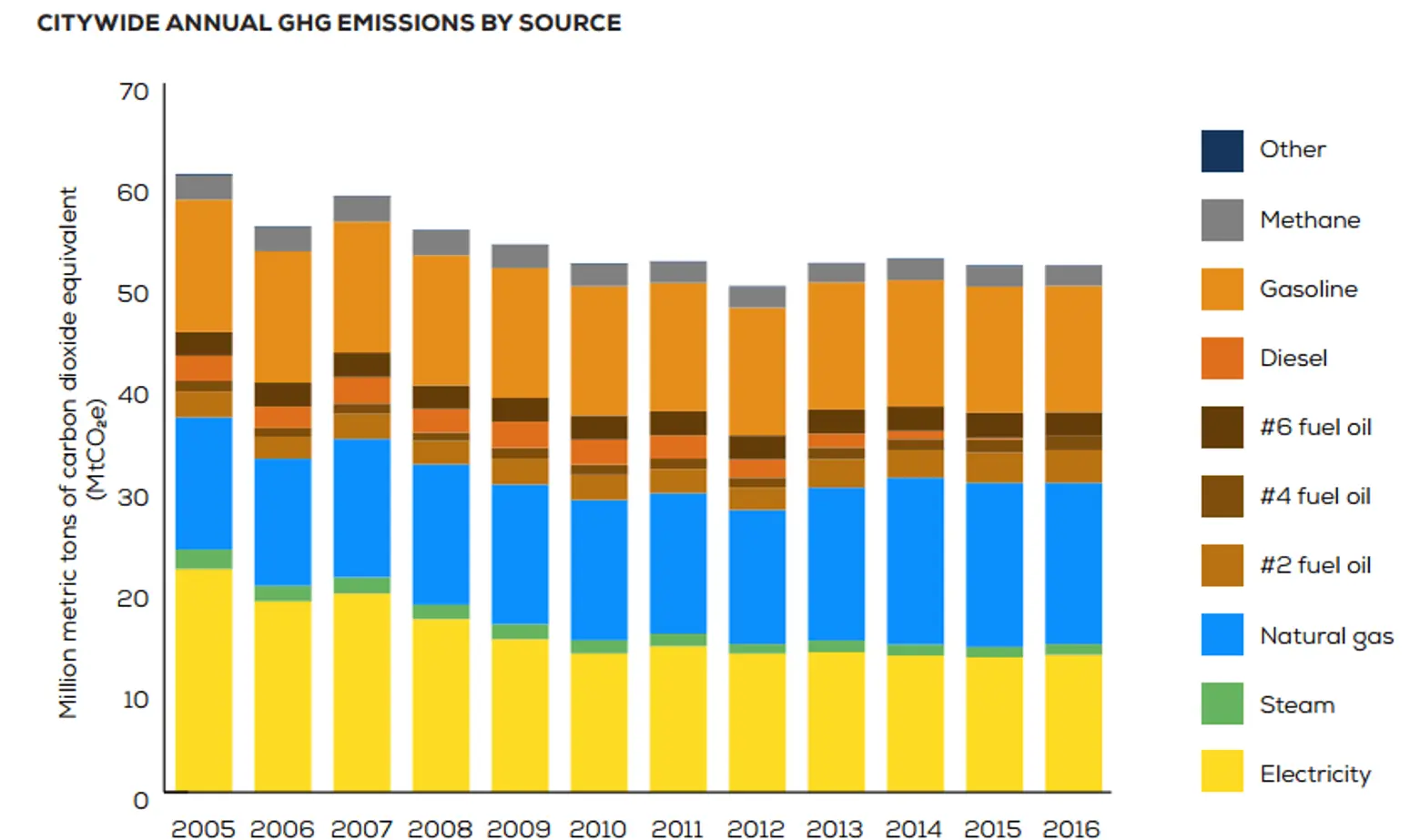
Greenhouse gas emissions citywide, by source, via the mayor’s office
Another notable action detailed in the report includes introducing a citywide waste collection. The curbside organic waste collection program will be expanded by expanding the number of drop off sites and the number of community composting sites, working with landlords to let tenants separate food waste and enforce more businesses to separate organics. A single-stream recycling program will be introduced, no longer requiring the separation of plastics, glass and paper.
Transitioning away from fossil fuel use and toward clean energy, the city will commit to powering its own operations with 100 percent renewable electricity. Plus, the city will accelerate the shift to electric vehicles and will put $10 million toward the installation of 50 charging stations across all five boroughs by 2020.
According to the mayor’s office, the impacts of climate change hit the most vulnerable the hardest. The city plans to address economic and social inequities when looking to reduce greenhouse gas emissions, like improving local air quality, preserving affordable housing and increasing access to transportation.
Read the city’s report, 1.5°C: Aligning New York City With the Paris Climate Agreement, here.
RELATED:
